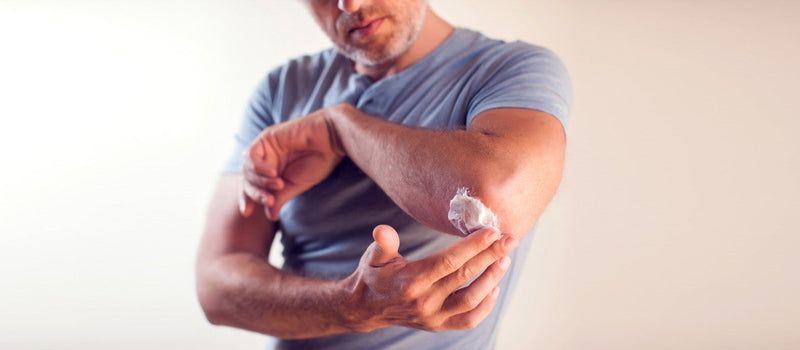

There is nothing like a good night’s sleep. But for many, getting enough sleep or getting quality sleep is a challenge. The American Sleep Apnea Association described the state of sleep health in America “as dismal.” About 50 to 70 million Americans have sleep disorders and 1 in 3 adults (about 84 million people) fail to get the recommended amount of uninterrupted sleep needed for their health. [1]
If you have diabetes, sleep difficulties are not uncommon. A study conducted in 2012 found an association between sleep disturbances and an increased risk of having a history of heart attack, stroke, coronary artery disease, diabetes, and obesity. [2]
Having diabetes does not necessarily signal that you will have sleep disturbances. However, your symptoms may impact your sleep. That is because fluctuations in blood sugar levels either low (hypoglycemic) or high (hyperglycemic) can result in sleep disturbing symptoms. Conversely, sleep disturbances can affect blood sugar levels and increase the risk of developing insulin resistance. [3]
Sleep disturbance symptoms
Sleep disturbance symptoms caused by blood sugar fluctuations you may experience include:
Frequent urination: High blood glucose levels can cause the need to urinate. If your blood sugar is elevated at night, you may need to go to the bathroom several times during the night, resulting in sleep disturbances.
Dehydration: When there is extra glucose in the blood, your body draws water from your tissues, which can result in dehydration. If you feel thirsty at night, you may wake up to get a drink of water.
Dizziness and sweating: Low blood sugar can cause dizziness, sweating and shakiness, affecting sleep.
Sleep disorders associated with diabetes
There are some sleep problems that may be associated with both type 1 and type 2 diabetes.
Sleep apnea: Sleep apnea occurs when your breathing stops and starts throughout the night. Sleep apnea is more common among those with type 2 diabetes. A study conducted in 2009 found that over 86 percent of participants who were obese and had type 2 diabetes had sleep apnea.[4]
Restless leg syndrome (RLS): RLS causes twitchiness and discomfort in your legs during sleep. It is more common among diabetics due to diabetic neuropathy, which causes nerve damage. [5]
Insomnia: Because diabetes can affect sleep patterns, insomnia can be potential complication.
Effect of lack of sleep on diabetes
While diabetes can affect sleep, a lack of sleep can affect your diabetes. Lack of sleep can result in excess eating to restore energy. The result is a rise in blood sugar. A lack of sleep also makes it more difficult to maintain weight and can increase the risk of obesity, which can lead to the development of type 2 diabetes.
The CDC also reports less than 7 hours of sleep regularly can result in an increase in insulin resistance, raise blood pressure and seriously increase the risk of a heart attack, and make your immune system less able to fight infection. All of these make it harder to manage diabetes.[6]
Improve sleep
CDC recommends to get more quality sleep:[7]
- Wake up and go to bed at around the same time every day, even on weekends
- Keep your room dark, quiet, relaxing, and cool
- Remove electronic devices from the bedroom
- Get some exercise during the day
- Unwind and relax before you go to bed
- Avoid large meals late at night and afternoon or evening caffeine. Also avoid alcohol in the evening.
- Have a routine to get ready for bed. Read or write in a journal.
- Only go to bed when you are tired
[1] “The State of Sleep Health in America 2023,” sleephealth.org (American Sleep Apnea Association), Accessed June 5, 2023. https://www.sleephealth.org/sleep-health/the-state-of-sleephealth-in-america/
[2] Grandner MA, Jackson NJ, Pak VM, Gehrman PR. Sleep disturbance is associated with cardiovascular and metabolic disorders. J Sleep Res. 2012 Aug;21(4):427-33. doi: 10.1111/j.1365-2869.2011.00990.x. Epub 2011 Dec 12. PMID: 22151079; PMCID: PMC3703752. https://www.ncbi.nlm.nih.gov/pmc/articles/PMC3703752/
[3] Morales-Brown, Louise, “What to know about diabetes and sleep,” Medical News Today, April 14, 2022. https://www.medicalnewstoday.com/articles/diabetes-sleep
[4] Foster GD, Sanders MH, Millman R, Zammit G, Borradaile KE, Newman AB, Wadden TA, Kelley D, Wing RR, Sunyer FX, Darcey V, Kuna ST; Sleep AHEAD Research Group. Obstructive sleep apnea among obese patients with type 2 diabetes. Diabetes Care. 2009 Jun;32(6):1017-9. doi: 10.2337/dc08-1776. Epub 2009 Mar 11. PMID: 19279303; PMCID: PMC2681024. https://pubmed.ncbi.nlm.nih.gov/19279303/
[5] Morales-Brown, Louise, “What to know about diabetes and sleep,”
[6] “Sleep for a Good Cause,” CDC, Accessed June 5, 2023. https://www.cdc.gov/diabetes/library/features/diabetes-sleep.html
[7] IBID








